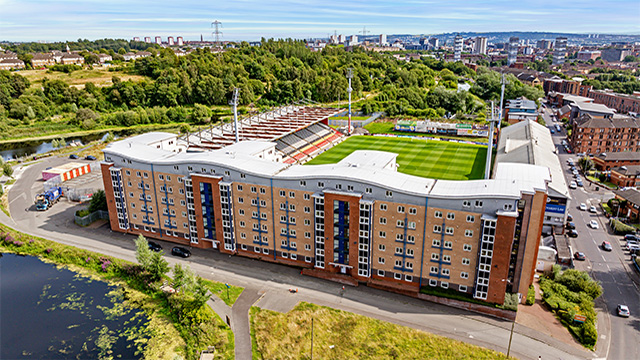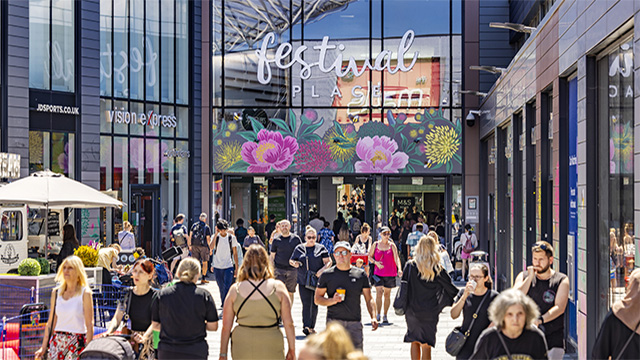Planet-first workspaces: sparking the conversation
LISTEN The workplace has the power to “set the tone” for a sustainable future, putting the planet first and creating environments that benefit the community “well beyond the 9 to 5”, according to office designer Peldon Rose and its Sustainability Sprint manifesto.
In the latest EG Property Podcast, we spoke with Tash Hewlett, senior project designer at Peldon Rose, and Steve Malkin, chief executive and founder of environmental consultant Planet Mark, which is working with Peldon Rose on improving its own office practices, about Sustainability Sprint and what it takes to create a “planet-first” workplace.
LISTEN The workplace has the power to “set the tone” for a sustainable future, putting the planet first and creating environments that benefit the community “well beyond the 9 to 5”, according to office designer Peldon Rose and its Sustainability Sprint manifesto.
In the latest EG Property Podcast, we spoke with Tash Hewlett, senior project designer at Peldon Rose, and Steve Malkin, chief executive and founder of environmental consultant Planet Mark, which is working with Peldon Rose on improving its own office practices, about Sustainability Sprint and what it takes to create a “planet-first” workplace.
“We undertook Sustainability Sprint with a group of experts from all different backgrounds and specialities,” Hewlett says. “We wanted to examine what a planet-first workplace could or would look like. We wanted to create a hypothetical, sustainable office and really dive into what that means for landlords and occupiers.”
A mindset shift
According to Hewlett, Peldon Rose is looking to “spark the conversation” and hopefully lead to a “mindset shift” on the wider possibilities of how workspaces can be used in a multi-purpose way that reduces carbon output and benefits the wider community outside of conventional working hours.
“People are scared, they’re not sure what the right thing is to do,” Hewlett says. “So we’re helping guide them. But we don’t know all the solutions either. We don’t know the answers, We are really just trying to get on that journey, and educating our tenants and landlords on what they can do in a space and how they can make very easy changes that are sustainable decisions.
“Whether that is considering the flow of the office space to encourage people to move and to walk around, thinking about their wellbeing, and simple things like material choices, considering waste, or considering where materials are actually being sourced from. There are really easy things we can do in the space already to create a very sustainable offering.”
More than just green initiatives, Hewlett says the planet-first approach is also about prioritising people and creating “human-centric spaces for everybody”. But there is no “one size fits all,” and there are an array of needs to be considered, including those of neurodiverse and differently abled colleagues.
“We’re all different, we all need different things,” she says. “So creating quiet spaces, retreats for people to go and take themselves away, and thinking about how we can adapt space to make it flexible for people, that is going to be one of the biggest things.
“Flexibility and freedom and autonomy as to how people want to work, and really giving opportunity and choice to everyone, will create an inclusive and hopefully accessible space. It’s super important that we are putting our people first as well as the environment.”
Looking for leadership
Beyond employees, the Sustainability Sprint also “challenges what the office is,” outside 9 to 5, Monday to Friday.
“Using these buildings as multi-purpose spaces, using them for 24 hours, is so much more beneficial,” Hewlett says. “I think it can benefit the community, but also businesses themselves.”
The work done on the Sustainability Sprint has impressed Malkin, who stresses the importance of “progress, not perfection”.
He adds: “This is a bit of a cliché, but it is a journey. You don’t have to be perfect. We’re just trying to get better and better. We’ve got to break out of business as usual. We’re in this period of radical transformation. And the built environment is an important – critical, probably – part of decarbonising and getting to net zero, as well as meeting the needs of wider communities.
“But it’s important that organisations talk about sustainability so that others follow suit. We’re desperate for leadership in this space, demonstrating that companies can be acting ahead of compliance and regulation.”
Malkin suggests a need for “pragmatic optimism” to inspire the built environment to get on the front foot when it comes to sustainability.
“If we are going to rethink the way that we see our places of work going forward, we need to have a positive mindset in terms of the changes that we can make,” he says.
“At the end of the day, we need to better inform people to make better decisions.”
Download Peldon Rose’s Sustainability Sprint manifesto
To send feedback, e-mail piers.wehner@eg.co.uk or tweet @PiersWehner or @EGPropertyNews
In partnership with











